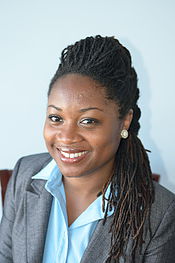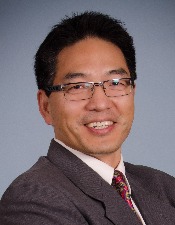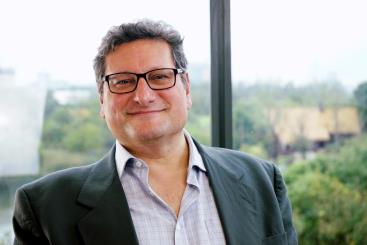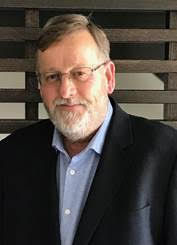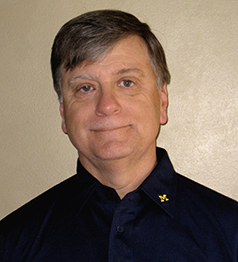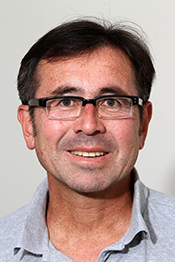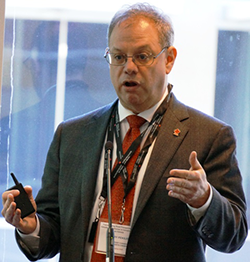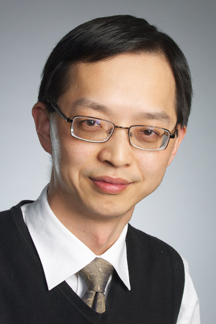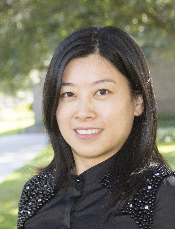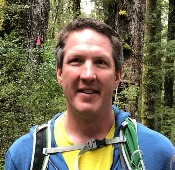Invited Speakers
Dr. Celeste Chavis
Dr. Celeste Chavis is an assistant professor in the Department of Transportation and Urban Infrastructure Studies at Morgan State University. She holds a Doctor of Philosophy (2012) in Civil and Environmental Engineering from the University of California, Berkeley and is a licensed Professional Engineer in the State of Maryland. Her research explores the intersection of transportation operations and planning, and equity in the United States and abroad. Recent work includes topics on transit signal optimization, effect of transit design on student absenteeism, bicycle safety planning and travel behavioral modeling.
Dr. Liping Fu is a Professor in the Department of Civil and Environmental Engineering and Director of the Innovative Transportation System Solutions (iTSS) Lab at the University of Waterloo. He is a Fellow of Canadian Society for Civil Engineering and the past Chair of Transportation of Division of CSCE. Dr. Fu received Transportation Association of Canada (TAC)'s 2011 Academic Merit Award sponsored by Transport Canada for his long-term contribution to the advancement of the academic field and to the development of tomorrow's transportation leaders. Dr. Fu's research interest specifically focuses on evaluation and optimisation of large, complex traffic and transportation service systems where uncertainty and dynamics play a major role, and on the development of decision support tools for use in managing these systems. He has a long track record of research contributions to the areas of intelligent transportation systems, public transit, road safety, and winter road maintenance. Dr. Fu holds several international patent and software copyrights. Currently, Dr. Fu is leading a number of projects funded by NSERC, Transport Canada, Ministry of Transportation Ontario, City of Toronto, Region of Waterloo, Go Transit, and many industrial partners. He has served on numerous technical committees of various professional organizations, including Transportation Research Board's Committee, Editorial Advisory Board of the journal of Transportation Research, Intelligent Transportation Systems Society of Canada, Canadian Urban Transit Association, and Institute of Transportation Engineers.
Ibrahim Gedeon is one of the telecommunications industry's eminent thought leaders. By combining insight and skill as an applied scientist with a lighthearted approach to leadership he is now Chief Technology Officer for TELUS, where he is responsible for all technology development and strategy.
Dave Grafton is a senior I.T. professional with 40 years' experience in the business applications arena. Prior to joining Tantus, Dave spent 15 years with IBM Canada in senior application management solutions and sales roles, retiring from IBM in December 2016 as the Application Innovation Services Leader for the Canadian Public Sector, responsible for annual service sales in excess of $100M. Dave's personal experience has covered several industries including large procurements and contract renewals in healthcare, energy, transportation and aerospace. He brings a wealth of insight into all matters related to application management, organizational assessment, sourcing strategy, large deal management, contract negotiation, and solution implementation.
As the program manager for vehicle systems for the Tampa CV (V2X) Pilot, Dave led the vehicle integration. Brandmotion, a nationally known developer and distributor of automotive products was selected to be the Vehicle System Integrator for the pilot. The Tampa CV Pilot deploys a rich variety of connected vehicle applications (e.g. Wrong Way Entry and Pedestrian Collision Warnings) throughout downtown Tampa. We will equip ten Hillsborough Area Regional Transit (HART) buses and ten TECO Line Streetcars, and 1600 privately owned vehicles of all makes and models. Dave led the vehicle systems collaboration to create a common vehicle system specification (e.g. On-Board unit) across all suppliers. To date, this team has installed, tested and put on Tampa roads over 500 passenger cars as we are entering the data selection phase of the pilot.
Dave's 42-year career spans the "golden age" of automotive electronics, as a Ford Motor Company design manager responsible for the development of several high-volume products - powertrain sensors, body/vehicle networks, audiophile systems, Parking Aid Systems, Adaptive Cruise Control, and infotainment/connectivity products. After retirement from Ford in 2006, Dave consulted as McNamara Technology Solutions LCC working with leading automotive OEMS/suppliers, Leidos for the USDOT and other clients to advance Connected Vehicle/ADAS technology. From 2015 through 2016, Dave worked for Magna R&D; a leading automotive supplier of ADAS/Cameras based systems, before joining Brandmotion in 2016.
Dave received his Bachelor Degree in Electrical Engineering from the University of Michigan, Ann Arbor, Michigan in December 1973 and his Masters degree in Solid State Physics with honors from the University of Florida, Gainesville, Florida in 1976. He has five US Patents in the areas of sensors, vehicle security and navigation. He is active in SAE, IEEE, and a speaker/participant at the Consumer Electronics Show and Telematics Update Conferences.
Jim Misener is Senior Director, Technical Standards, leading automotive and transportation standards activities for Qualcomm, with expanded role to include development and executing strategies to establish cellular V2X ecosystems and foster global deployment. This ecosystem shift includes adaptation of ITS standards and application protocols, compliance and certification, trade association strategy and industry/government acceptance.
In addition to his role with TSAG, Jim is a 5GAA Board member, an ITS California Board member, the SAE C-V2X Technical Committee Chair, an active member of IEEE 1609 Working Group, on the US TAG for ISO TC204 and active in the Transportation Research Board. Jim also serves as an Advisory Council member to the Carnegie Mellon University/University of Pennsylvania Transportation Center, Technologies for Safe and Efficient Transportation.
Jim was early pioneer in vehicle-highway automation and vehicle safety communication at the California Partners for Advanced Transit and Highways (PATH) at UC Berkeley, beginning in the mid 1990s. He has served as the PATH Executive Director, Executive Advisor to Booz Allen Hamilton, and an independent consultant with clients ranging from Silicon Valley startups, the automotive industry and Federal and State government agencies. Jim holds BS and MS degrees from UCLA and USC.
Dragos Margineantu is the AI Chief Technologist and Technical Fellow of Boeing Research & Technology. His research interests include learning planning and reasoning for decision systems, anomaly detection, human-in-the-loop learning, validation and testing of decision systems, cost-sensitive, active, and ensemble learning. Dragos was one of the pioneers in research on ensemble learning and cost-sensitive learning, and in statistical testing of learned models. At Boeing, he developed machine learning and AI based solutions for airplane maintenance, autonomous systems, airplane performance, surveillance, design, autonomous systems, and security. Dragos served as the Boeing principal investigator (PI) of the DARPA "Bootstrapped Learning" program and is the Boeing AI lead for the DARPA "Assured Autonomy" program, focusing on robust machine learning techniques for autonomous systems. He also served as PI of DARPA's "Learning Applied to Ground Robots" (LAGR) program and as the PI of several Boeing research projects in AI and machine learning. Dragos designed and developed the learning and computer vision components of Boeing's "Opportune Landing Site" effort (AFRL). Dragos serves as the Editor of the Springer book series on "Applied Machine Learning" and as the Action Editor for Special Issues for the Machine Learning Journal (MLj). He serves on the editorial board of both major machine learning journals (MLj and JMLR), and served as senior program committee member of ICML (the premier machine learning conference), KDD (the premier data mining conference) and AAAI (the premier AI conference). He was the chair of the KDD 2015 Industry and Government Track. He has edited a special issue of the Machine Learning Journal on Event Detection (Machine Learning 79:3, June 2010).
Dr. Barry Pekilis, Ph.D., P.Eng., is the Intelligent Transportation Systems (ITS) Program Technical Leader for the National Research Council Canada. His mandate includes helping Canadian governments, industries and academia develop and build their ITS capacity, and to foster a national ITS ecosystem of small and medium-sized (SME) Canadian enterprises to innovate, promote and export next‑generation ITS technologies to global markets.
Prior to NRC, Barry managed the ITS / Connected Vehicle (CV) file As a Senior Engineer for Transport Canada, first, as part of the ITS Policy Branch, and then later, under the ecoTECHNOLOGY for Vehicles Program (eTV). Barry was instrumental in bringing together the vision, funding and partnerships that led to creation of ACTIVE-AURORA, Canada's first Connected Vehicle testbed.
Before joining the federal government, Barry worked as a Research Engineer in Transit ITS at the Ministry of Transportation of Ontario, and as a real-time, embedded system Software Engineer for a variety of small- and medium-sized technology companies.
Barry received his Ph.D. in Software Reliability Engineering from the University of Waterloo. He sits on the steering committee for the Centre for Smart Transportation Steering Committee at the University of Alberta, and he is a member of the Transportation Research Board (TRB) Standing Committees on ITS and Vehicle-Highway Automation.
Dr. Yu Zhang
Dr. Yu Zhang is an expert of network modeling and system analysis with applications in air transportation, multimodal transportation, and shared mobility. Dr. Zhang aims at developing innovative methodologies and concepts for resilient, efficient, and sustainable transportation systems. She has published more than 30 journal papers, including in top transportation journals such as Transportation Research Part B, Part C, Part D, and Part E. Dr. Zhang is serving on the editorial board for Transportation Research Part C and International Journal of Sustainable Transportation, and is an invited referee for Transportation Science, Transportation Research Part A, Part B, Part C, Part D, Part E, Journal of Air Transport Management, Networks and Spatial Economics, Journal of Cleaner Production, Journal of Air Transport Management, Journal of Intelligent Transportation Systems, European Journal of Operation Research etc.
Dr. Zhang serves as the Chair for Transportation Research Board (TRB) Airfield and Airspace Capacity and Delay (AV060) committee, the Immediate Past President for Chinese Overseas Transportation Association (COTA). Dr. Zhang holds Ph.D. and M.S. from the University of California Berkeley in Civil and Environmental Engineering and Bachelors from Southeast University of China in Transportation Engineering. Dr. Zhang is the recipient of the 2010 Fred Burggraf Award, for excellence in transportation research by researchers 35 years of age or younger, presented by TRB of the National Academies of Science.
Shane Zumpf
Shane Zumpf is an Enterprise Developer Specialist with over 13 years' experience as a software architect, specializing in creating enterprise applications. He is a certified Microsoft developer and has architected and lead development efforts on a variety of complex software systems for the past 7 years. Shane is currently the Application Development Lead for the WYDOT Connected Vehicle pilot project for the and is responsible for the system design, application development oversight and schedule as well as testing.
